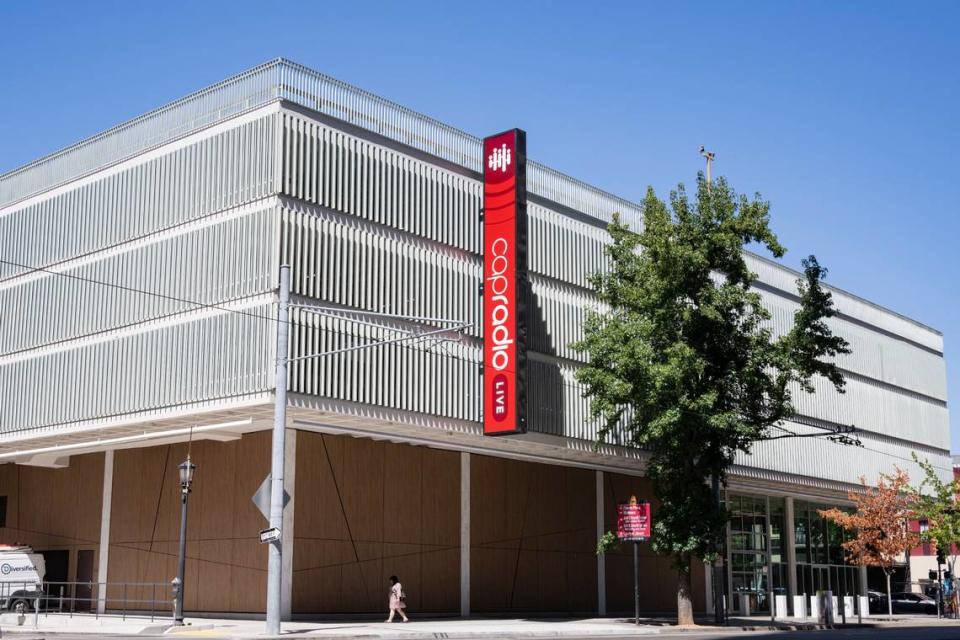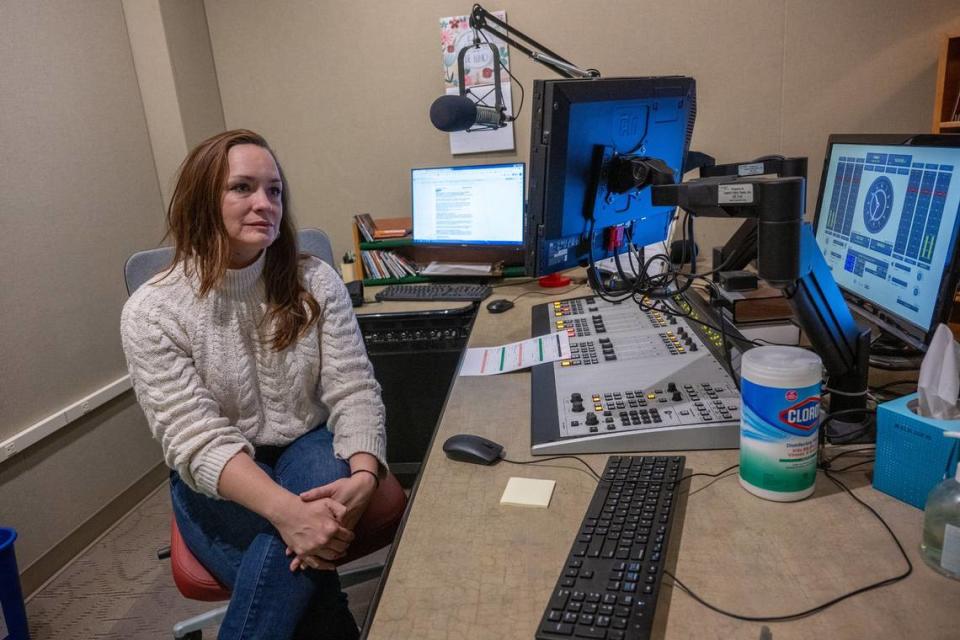‘Where did our money go?’ CapRadio donors express shock, anger amid financial trouble
Capital Public Radio donors said they earmarked hard-earned cash for the station because it delivered in-depth news. The same area residents expressed shock, anger and sadness after a blistering audit showed financial peril roiling the nonprofit.
Staff layoffs preceded a report by the California State University’s Chancellor’s Office saying a lack of management oversight led to poor finances. The station could be insolvent by January, Sac State said after it resumed financial control over the station. Both KXJZ-FM (90.9), CapRadio’s news and talk station, and classical station KXPR-FM (88.9) are among CapRadio’s constellation of radio operations from Modesto to the Oregon border to Lake Tahoe.
Sacramento resident Margaret Buss, who continues to donate to CapRadio, said the broadcaster bills itself as a trustworthy news source. That trust was eroded by the board of directors, she said, but not the reporters who have acted professionally throughout the ordeal.
“It was kind of a blow to realize how much had gone wrong in an irresponsible way,” Buss said. “I trusted (them to) always be on the right side of things and (they) weren’t.”
But Buss and other donors who spoke with The Sacramento Bee said they would continue their contribution despite the turmoil.
“They need us donors now more than ever,” said Deanna Marquart, a longtime contributor.

Marquart, 80, sees her donation to CapRadio as a citizenship responsibility. She’s sustained by public radio’s music selections and political coverage.
It’s why she said she donated and why she continues to do so.
“I have no doubts, actually, that CapRadio will survive this crisis, but it was disappointing to hear about it,” Marquart said.
Contributions make up a significant chunk of cash flowing to the station.
Last year, the nonprofit’s total assets were $40.4 million, more than twice its revenue in 2021, a third-party audit from 2022 showed. Listener contributions equaled about $8 million in 2022, up from roughly $7.6 million in 2021.
Cal State’s report — which was released in September with university officials promising the release of a forensic examination early next year — said investigators selected 20 cash receipts to see if deposits were properly completed. It found that the deposits related to donations were not adequately documented.
One donation was for nearly $57,000 and another was a charitable contribution of $10,000, the report said. An investigation showed the gift agreement and the acknowledgment letter were not kept, so it was unclear if the donor’s intent was preserved and the approval of an “authorized individual.”
However, local donors said they felt more trust and assurances after Sac State announced it would assume control over the station’s coffers. Some even said the storm over past practices could herald greater transparency.
“I really want CapRadio to survive, but I need to have some confidence that the money is being managed and tracked,” Buss said. “I need some confidence that the board is making wise decisions about their budget.”

Terri Lown, 67, added she’s worked in a place where leadership failed employees and the workers were left to grapple with the leftovers. Reading about employees working amid the strenuous circumstances prompted her to continue to donate, she said.
Alicia Dienst, another donor, said she prefers the nonprofit journalism model over a commercial institution. It was disappointing to her to see problems can also arise with a nonprofit.
“It just made me wonder: Where did our money go?” Dienst, 55, said.
With NPR as her primary news source, Dienst said she would continue to donate. Further problems may prompt her to reconsider, she said.
“I really hope that they can get their act together,” Dienst said. “And that we can be proud to have this as a news source, a local news source going forward.”

